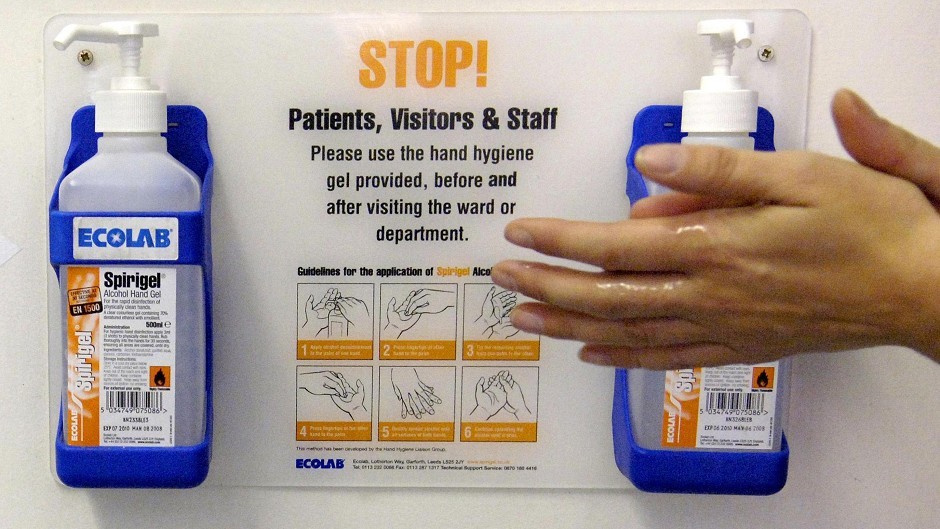Aberdeen University researchers have claimed the use of disinfectants to clean hospitals and prevent the spread of infectious diseases should be regulated in a similar manner to how antibiotics are prescribed.
In a new study, scientists from the university, working in collaboration with Leicester University, focused on specific types of bacteria and their resistances to disinfectants.
The research, led by Dr Karolin Hijazi from the university’s institute of dentistry and Professor Ian Gould, a consultant microbiologist at Aberdeen Royal Infirmary, was designed to help hospitals further understand how infectious illnesses can spread in medical environments.
In particular, the study analysed how the bacteria Staphylococcus epidermis – which is a form of bacteria found on human skin and is considered harmless – can become harmful and resistant to drugs.
Earlier research suggested that in environments with high volumes of disinfectant, such as intensive care units, the otherwise benign bacteria can develop into MRSA.
Professor Gould said: “Our research shows that in environments with a high concentration of disinfectant, this previously harmless bacteria can develop resistance to treatments which are commonly used to treat infection.
“This is potentially a very significant public health issue and highlights the importance of investigating how these bugs can become resistant to disinfectants.”
Their concerns have been highlighted by recent cases of MRSA in several hospitals across Scotland and the rest of Britain. The study comes at the same time as fears increase over the spread of “superbugs” with a heightened immunity to antibiotics.
Dr Hijazi added: “Basically, we are saying that intensive use of the particular disinfectants used in hospitals can contribute to the prevalence of bugs that are resistant to most antibiotics commonly used to treat infections.
“Our results suggest that we need to change the way we think about using disinfectants, particularly in the hospital setting.”
